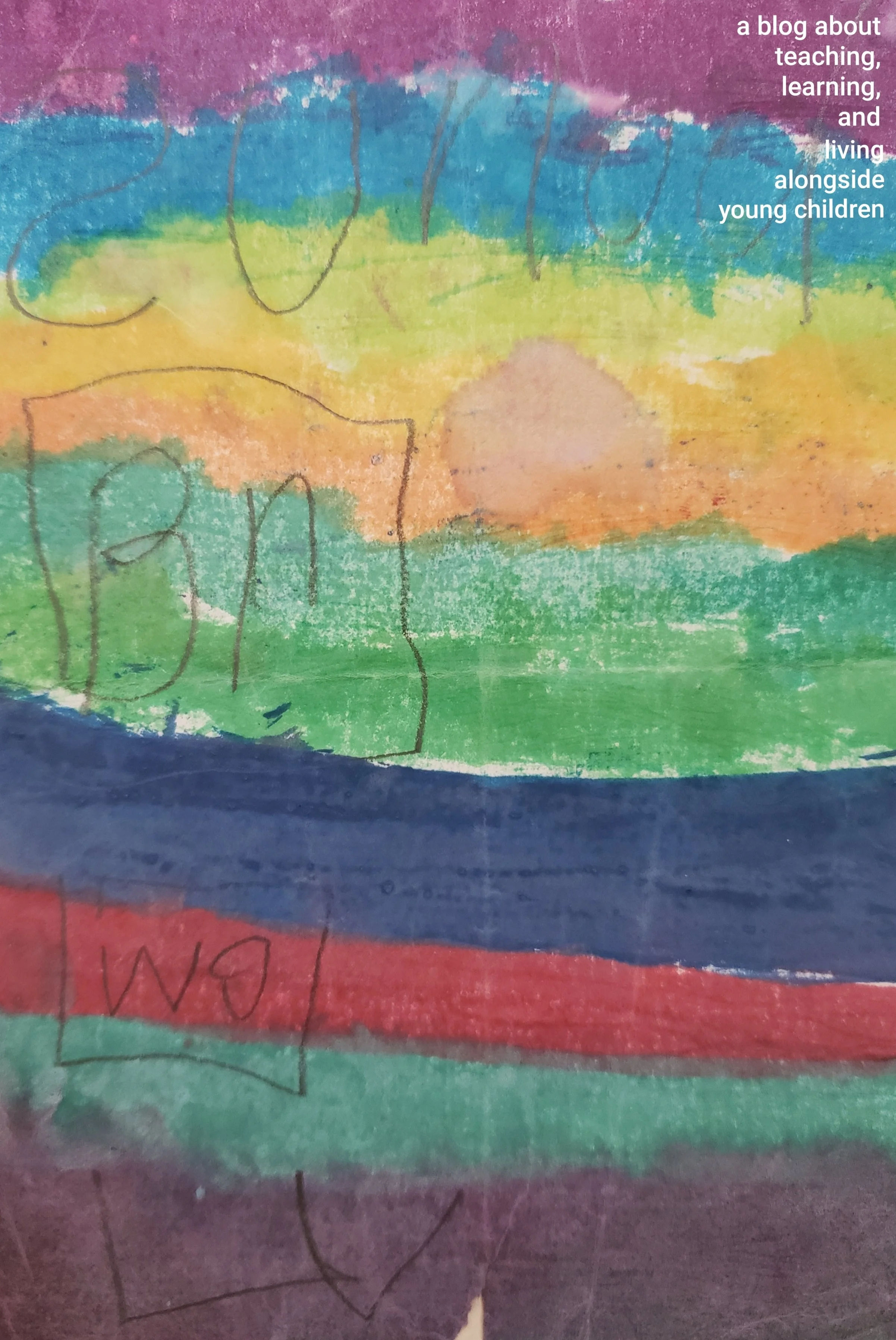Practice, Not Magic: “You’re not my best friend!”
/Illustration by Leia O., age 6
Practice, Not Magic is a series of posts about the practical aspects of living alongside young children. Focusing on one vignette, we can parse out the developmental from the situational and think through common dilemmas faced by parents, teachers, cool aunts, chosen family, et al. The principles below can be adapted for either home or the classroom, but are a guide for thinking, not a prescription.
Issue to work through: In this scenario, three-year-olds at school have discovered a new powerful question, “Are you my best friend?” and the even more powerful phrase, “You are not my best friend.”
Context and complications: Children around this age are often experiencing something completely new as they enter school or develop more peer relationships: complex emotions connected to people outside of their family. The title of “Best Friend” is extremely prevalent in our culture. Think how often adults ask children, “Who is your best friend?” as a way of relating to that child’s life. Think how many movies are set with the premise of two or three best friends taking on their world. To adults and older children who have their own rich life experiences around friendship, these are powerful words - words that can feel exceptionally warm or exceptionally cutting, depending on their own associations. These adult feelings are especially heightened when it comes to (or from) their child.
To very young children, however, these words are useful. Children employ “Best Friend” and its inverse, “Not My Friend,” because it communicates something very clearly and with great effect - closeness or space, sometimes tears, sometimes adult attention in the form of our well-meaning intervention. Plus, these phrases satisfy the developing brain’s need to classify and categorize - a way of making sense. From the simple: Food/Not Food. Cold/Hot. Safe/Not Safe. To the more complicated: Good Guy/Bad Guy. Boy/Girl. Best friend/Not My Friend. These binaries show up in children’s language and behavior when children are trying to make sense of the world around them. They learn to draw power and agency from these new understandings. Wow, I asked if we were best friends, and now we are playing together! I didn’t want to change my game when that person wanted to use this shovel. I said they are not my friend and they went away from me. It worked. Now the teacher is talking to me for such a long time. Interesting!
Supportive Strategy: Usually, children use these words to mean very different things than we understand as adults, usually as a way to engage or disengage from play. As always, the role of the adult is to try to understand the child’s perspective and then guide them to use strategies in line with the vision we’re holding for life together. In this case, I would support the children in entering play in a way that is clear to their peers.
Remain as neutral and calm as possible, then help unpack the information the children want to convey. Pause the conversation and ask, "What does that mean?" and "What information are you wanting to give?" We can also empower children to respond with something that helps move past the emotional trigger, such as "I am not asking about best friends. I am asking what this game is about." This is a strategy children will need to practice again and again. That’s okay. We just keep doing our best to encourage clear, intentional communication.
A quick note on a bigger subject: It does not help to tell children, “we are all friends.” This is a confusing message for children who do not have the cognitive or emotional subtlety to understand where and when this ethos really applies. Are strangers our friends? Are people who are always unkind toward us our friends? There’s more to be said about how euphemisms are used to frame children’s behavior, but more simply, “we are all friends” isn’t a strategy and can’t help a child make in-the-moment sense of their interactions with peers.
What this strategy might sound like:
Child 1, approaching two other three-year-olds on the play yard: Are you my friend?
Child 2: No. Child 3 is my best friend.
Child 1, tearing up: But I want to play with you.
Child 2: You are not my best friend.
Micah: Hmm, what’s happening?
Child 1: Child 2 says I am not their friend.
Micah: What was happening when they said that?
Child 1: I wanted to play with them.
Micah: Child 2, what happened?
Child 2: We are playing. We do not want Child 1 to play with us.
Micah: (modeling perspective-taking) Are you worried your game will change? (children nod) Child 1, you might ask them what the game is.
Child 1: What game are you playing?
Child 2: Family.
Micah: (modeling social strategies) Who are you in this game?
Child 2: I am the baby.
Child 3: I am the daddy.
Micah: Child 1, who would you be?
Child 1: The mommy!
Micah: Oh wow! A mommy, daddy, and baby!
Children: Yeah!
Children play.


